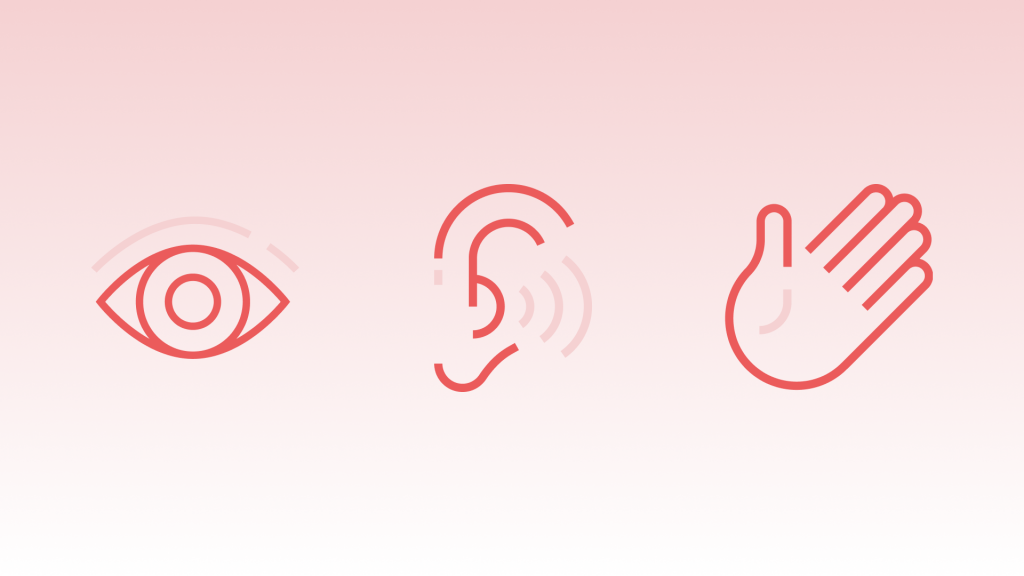We recently attended an accessibility seminar and thought we’d share some insights.
Accessibility is getting increased attention and impact within various industries, especially digital industries such as ours, and will eventually be enforced by law on a global level.
The UN defines accessibility as a human rights issue as well as a development concern. It’s about making sure that digital communication is being developed on equal terms.
There are no “normal” users!
There are no “normal” users! About 25% of all users are suffering from some kind of disability, permanent or temporary. It’s not always what you might think it is, disabilities could also include having a bad internet connection, different devices, speaking different languages, being based in different countries etc.
Accessibility means a better experience for everybody and is a given part of UX. We’re used to hearing “mobile-first”, but as this is becoming common practice, it’s becoming increasingly common to say “accessibility first”. We are seeing big companies incorporating accessibility in everything they do, for example, Microsoft’s inclusive design:
https://www.microsoft.com/design/inclusive/
Accessibility makes it easier for everyone
At how-many.herokuapp.com you can see how many users, based on the total number of users, has a disability and of what kind by percentage.
What accessibility means for your product/service:
- Easier to use
- Easier to maintain
- Facilitates onboarding
- Lessens the pressure on customer service
- Increases successful user journey goals
Accessibility & SEO
As search engines are starting to take accessibility more into consideration when ranking sites, this is becoming a specialist profession. These are some examples of how accessibility and SEO work together:
- Unique and explicit page titles (most relevant content first)
- No “read more…” links, all links are to be unique and explanatory
- No broken links
- Clear heading structure, as this is a form of navigation that frames content
- Content that’s easy to understand improves the experience for everybody, including google
- Alt texts for video and images
- Don’t use PDF formats
- SEO loves performance
Accessibility is also good for your brand. It brings intrinsic value for users as well as co-workers and facilitates marketing and branding. It also works as a benchmark for competition while reflecting company values.
In the UK, there are currently regulations in place that demand public sector bodies sites, as well as some charities and other non-government organisation sites, (including websites, applications, documents, and third-party solutions) implement WCAG 2.1 AA standards.
GOV.UK – Digital accessibility: https://www.gov.uk/government/digital-accessibility
This summer, the EU is also about to include the “European Accessibility Act”, which will come into force by 2025. Here are examples of which industries will be affected:
- Computers/phones/tv+equipment/telephone services/OS
- Audio-visual media services
- ATMs and payment terminals
- E-books
- Air/bus/rail/boat services
- Bank services
- E-commerce
More information on the European accessibility act can be found at https://ec.europa.eu/social/main.jsp?catId=1202
Angry Creative has been aware of the 2025 deadline for some time already, meaning we have been working actively on accessibility within our products, services, and workflows. There is still work to be done, but we are getting there and making sure that we comply with the European accessibility act.
Do you need help ensuring that your digital presence complies with the EU’s forthcoming directives? Contact us and we will show you how you can prepare and how our products and services can facilitate.
